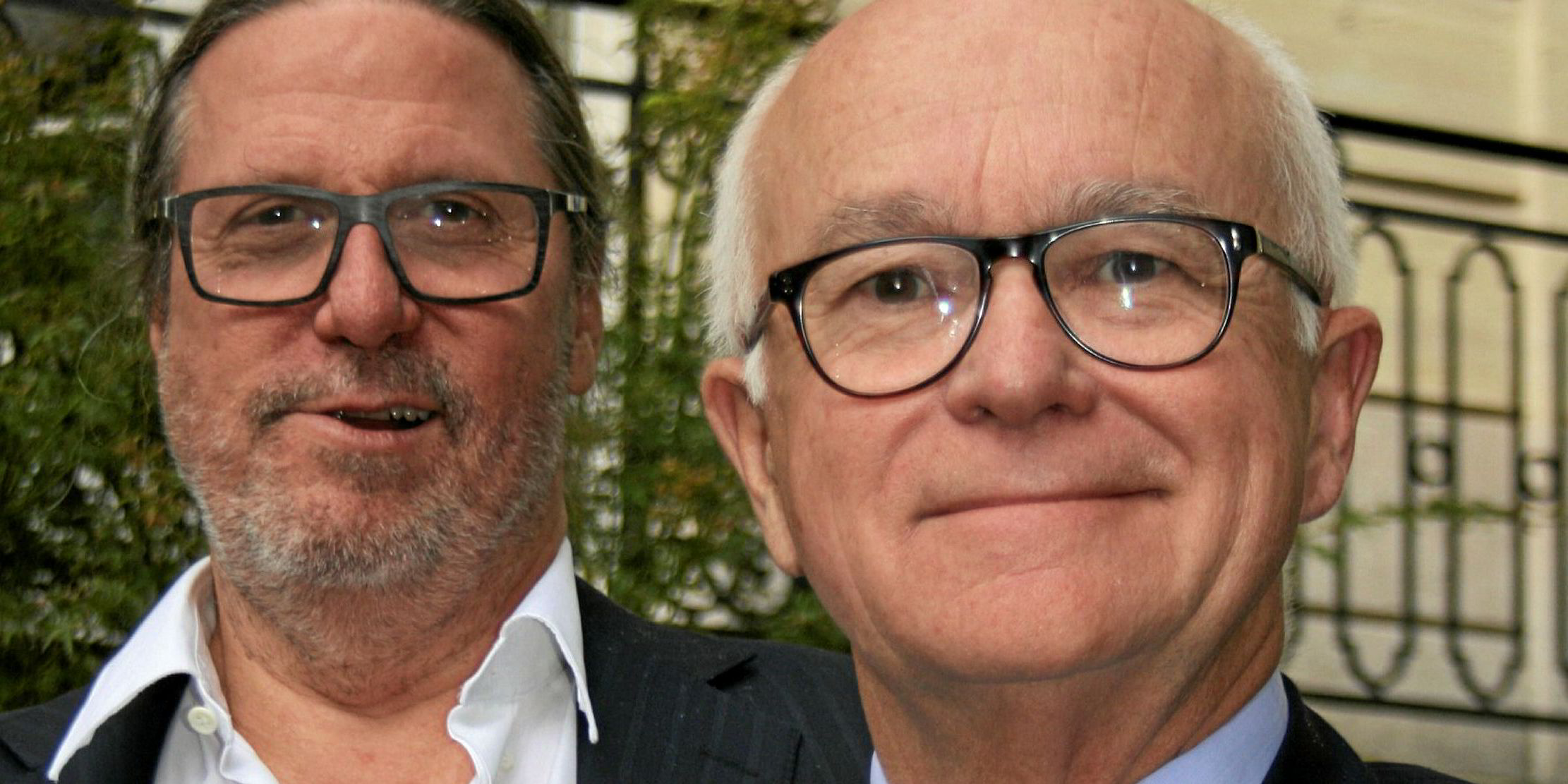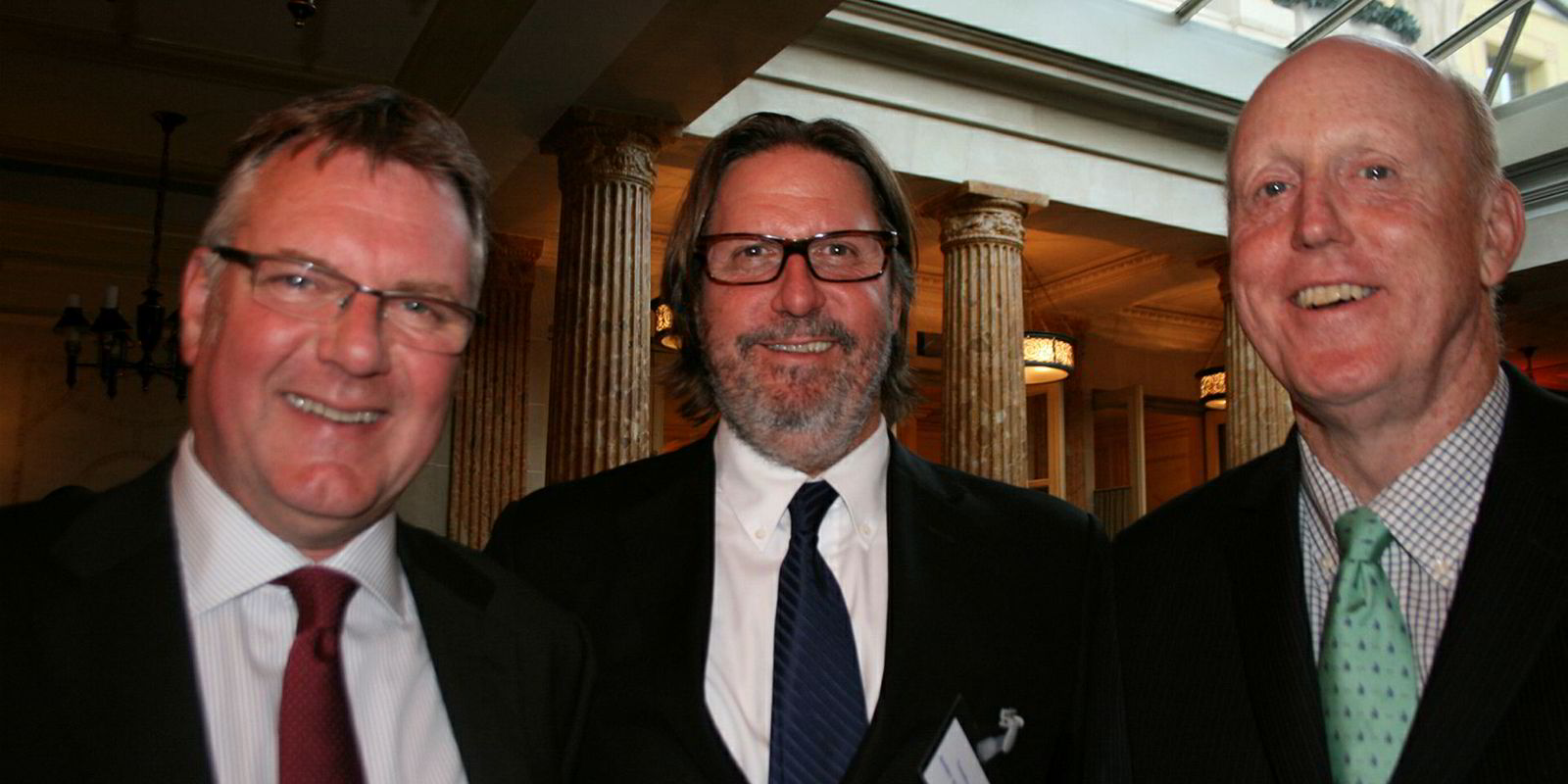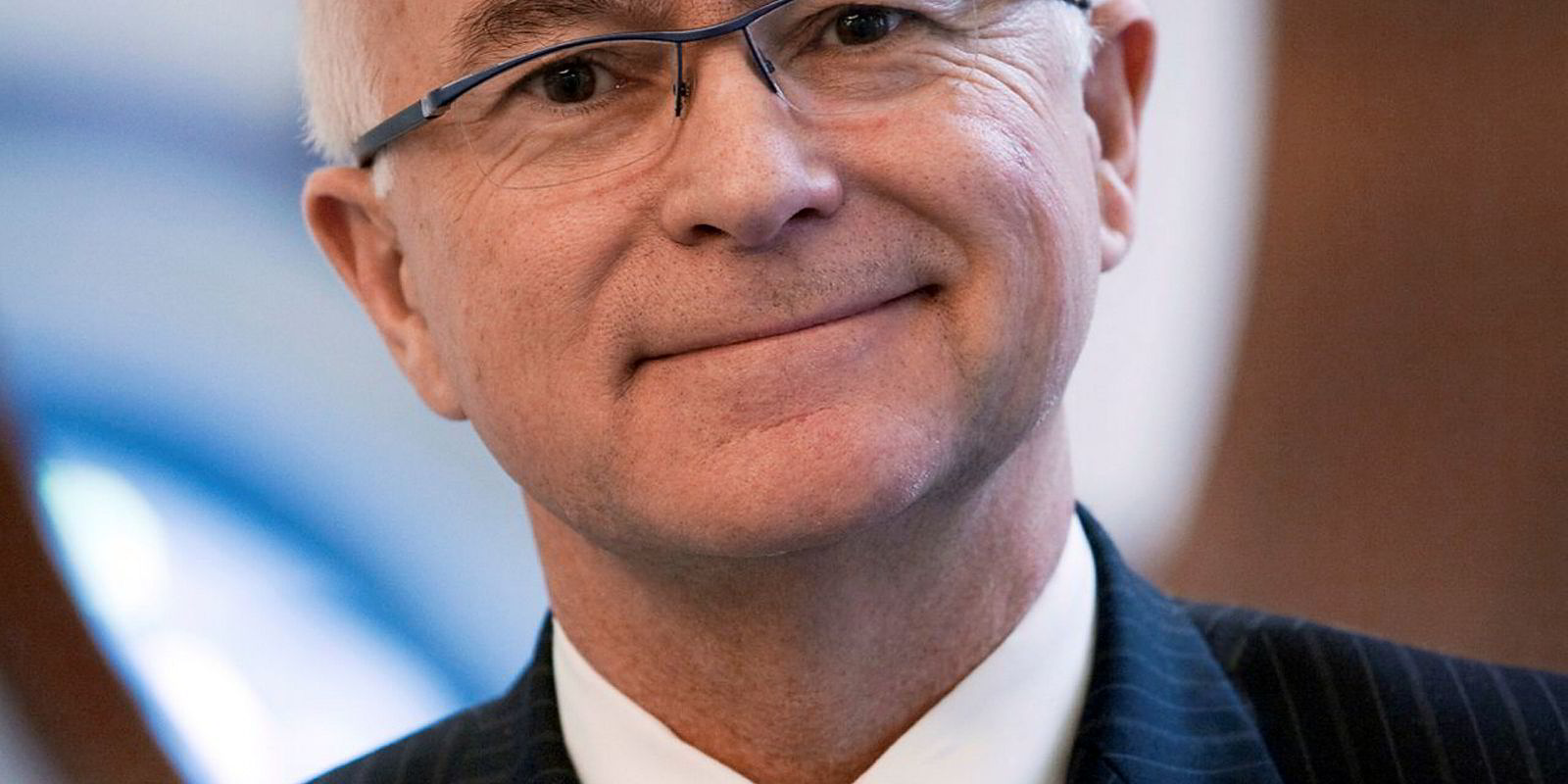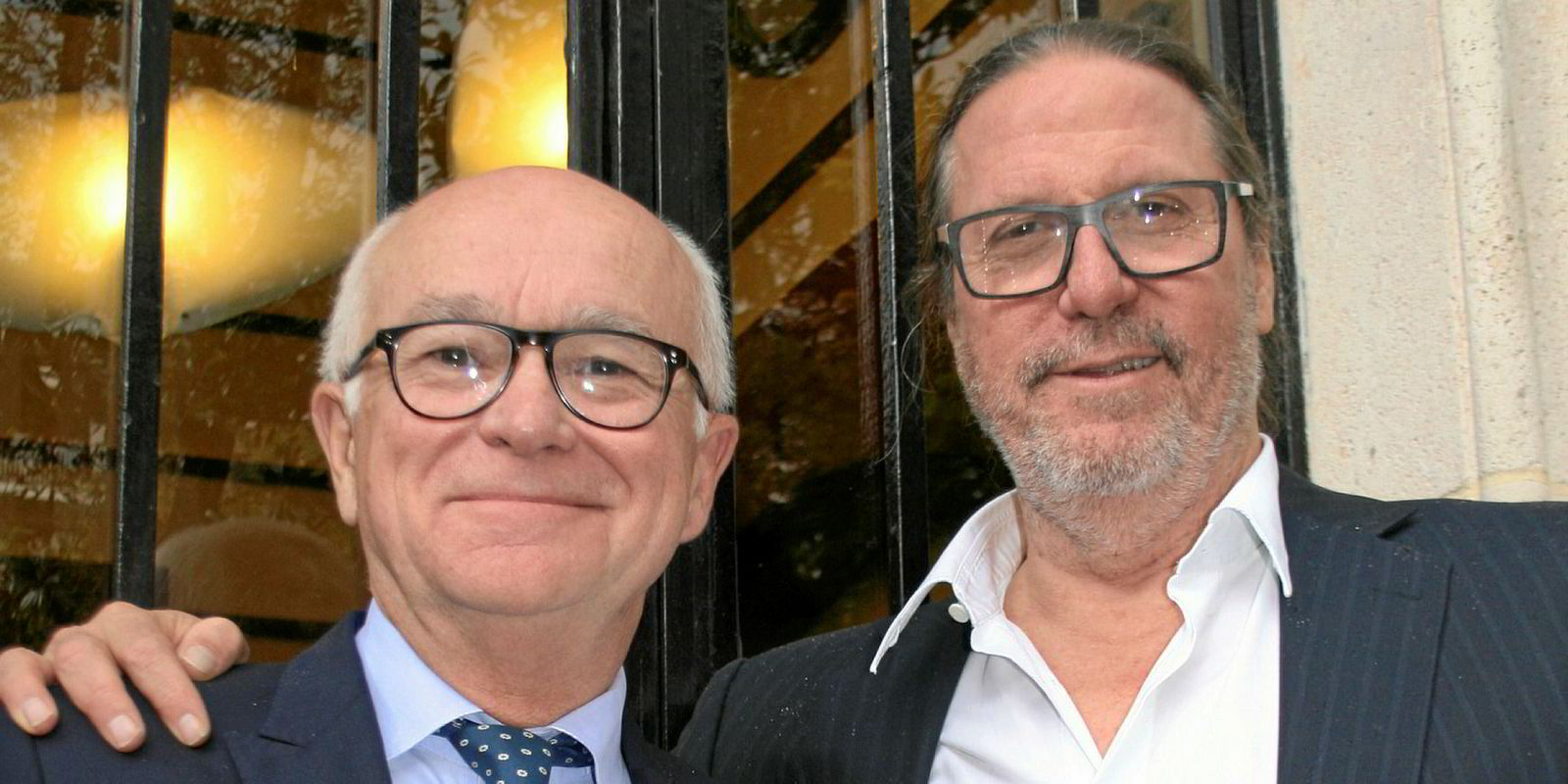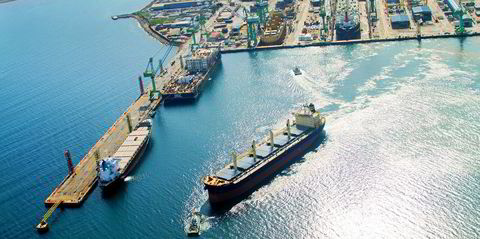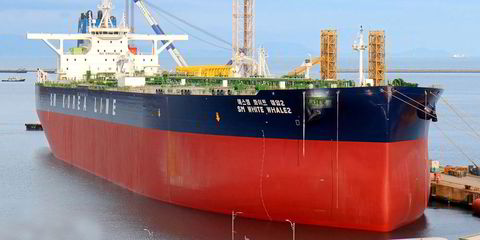Tim Jones is not an orthodox executive in his appearance, spurning the daily ritual of shaving, while sporting a short David Beckham-style ponytail.
"Why are you wearing a tie?" he asked when TradeWinds arrived suitably dressed at shipbroker Barry Rogliano Salles (BRS)'s headquarters in one of the most exclusive areas of Paris, Neuilly-sur-Seine.
Jones, 62, has stepped down as the brokerage group’s chief executive. He handed the job to Francois Cadiou, whose choice of a tie and suit speaks volumes about the contrasting personalities of these two men.
Cadiou gives the initial impression of a man more akin to former BRS chairman Jean-Bernard Raoust, with whom he has shared a strong interest in newbuildings, particularly cruiseships.
The new chief executive is also associated with bulkers, where he has been synonymous with designer Deltamarin’s high-efficiency B Delta “eco” bulkers, of which around 130 have been built.
Jones remains chairman of the Luxembourg-based BRS Group, whose operational headquarters are likely to remain in Paris for many years to come. Stubble and a ponytail may be a trademark for Jones but tradition also plays a big part in his thinking.
Not least in the need for an orderly transition of power at the broking house, which moved from the Champs Elysees to Neuilly-sur-Seine several years ago and has grown from 66 brokers in 2008 to around 180 at the midpoint of this year.
Jones’ passion is digital innovation, with BRS' flagship being shipping industry tools developed by its jointly owned AXSMarine division. Leaving the day-to-day operation of the group — notably shipbroking, which accounts for 80% of turnover — to Cadiou will free up time to pursue this growing sector of the business.
Shipbroking is changing fast and Jones is convinced that it will be a case of survival of the fittest. The handful of large brokerages could be whittled down to two or three, he says.
“All of us feel the services we have to provide are more consultancy, research, problem solving,” Jones said. "Actual transactions are becoming less and less important and in the long term will probably disappear or be online."
"The industry has to find a way to remunerate differently. A big part of our turnover is now developing into research and information technology. The brokers who haven’t done that are suffering seriously. They are completely dependent on transactions, which are becoming more and more under attack as the juice of the industry, the easy stuff, goes either direct or eventually online."
According to BRS figures, the company is one of three shops with more than 200 brokers; the others being SSY, Howe Robinson and Braemar. All trail far behind Clarksons with roughly 760.

“The thing with all of us is we realise that assets [newbuildings and secondhand sale-and-purchase, where Cadiou has been vice-president at BRS] are a result of your chartering departments,” Jones said.
"Consequently, BRS is now structured horizontally instead of vertically and more integrated so the guys on chartering think assets and assets think chartering.”
But both Jones and Cadiou stress that internationalisation has been the biggest makeover at BRS in recent years. As in Italy, the domestic French market declined and BRS had no alternative but to spread its tentacles.
“Our percentage of internationalsation has been bigger than most of our competitors,” Jones said.
In 2009, BRS had 53 brokers and operators based overseas, 41% of the total. By 2015, the respective figures were 129 and 68%. China, Switzerland, Singapore, Greece and the UK especially saw broker numbers rising but not Paris.
"In the early 1990s, when we started our expansion, we were roughly 90 to 100 [employees] and we have the same number of people in Paris [today] but the other 350 have been added overseas," Cadiou said. "Without the overseas offices, BRS would have shrunk."
Growth has differed between departments but the increase in dry cargo brokers from 88 in 2015 to 109 today has been the most noticeable. Tanker brokers have grown in that period from 58 to 67, while the number of brokers focusing on assets has remained largely static at 37.
However, one of the big commercial success stories for BRS in terms of assets has been its involvement in the building of B Delta “eco” bulkers in co-operation with Finnish designer Deltamarin, which had previously been associated mainly with ferries and cruiseships.
“Deltamarin had all the ability to come up with a unique product provided it was guided commercially and had benchmarks of what the market wanted,” Cadiou said.
“Ideas take a long time to materialise. I remember we started to speak about a new type of ship back in 2006 and 2007, and we were ready with something by August/September 2008 — not the best time to go to the market. Our first big contract was in June 2010. So far, we have done 130 [newbuildings] from 25,000 dwt to panamax size.”
Cadiou, a naval architect himself, says the design — offering increased deadweight and capacity, plus a big decrease in fuel economy — met with initial scepticism.
"For two or three years, people criticised the concept, saying it was not possible and we were all crooks, but at the end of the day, people started to copy,” he said.
